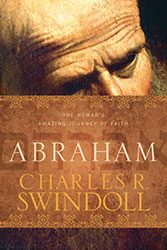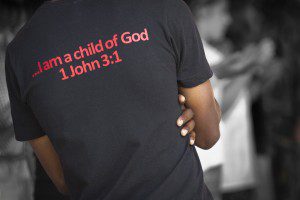 As an academic, I am pretty much required by contract to embrace complexity: to be of scholarly (i.e., publishable) caliber, any argument forwarded must be nuanced; a literature review must incorporate a diversity of perspectives; the opposition viewpoint should always be acknowledged. In fact, what I often find to be the real beauty of academic argumentation is the way conversations unfold layer after layer, how one thought leads to another, how questions can be left open and unanswered or answered with room for uncertainty, how one scholar’s work may bleed into another’s, and the conversation is open for as many voices as would like to come to the table. Complexity is characteristic. Indeed, when one thinks of scholarly literature, “simplicity” is rarely a word that comes to mind.
As an academic, I am pretty much required by contract to embrace complexity: to be of scholarly (i.e., publishable) caliber, any argument forwarded must be nuanced; a literature review must incorporate a diversity of perspectives; the opposition viewpoint should always be acknowledged. In fact, what I often find to be the real beauty of academic argumentation is the way conversations unfold layer after layer, how one thought leads to another, how questions can be left open and unanswered or answered with room for uncertainty, how one scholar’s work may bleed into another’s, and the conversation is open for as many voices as would like to come to the table. Complexity is characteristic. Indeed, when one thinks of scholarly literature, “simplicity” is rarely a word that comes to mind.
But there is something beautiful about simplicity as well. About fundamentals and capital-T Truths. Facts. Basics. Essentials expressed in clear, uncomplicated language. Things that take us back to the beginning and establish the groundwork.
And when you come across a piece of literature that combines both: the complexity of quality scholarship with fundamentals, written about in a simple and straightforward manner, you’ve really found something great.
Charles Swindoll’s latest work, a biography of Abraham, is just such an accomplishment.
Abraham: One Nomad’s Amazing Journey of Faith is part history, part sermon, part devotional. It will undoubtedly speak most directly to a Christian audience, as each chapter includes faith-building pointers and questions that would be excellent for a study group as well as working under the assumption that we are already at least partially-interested in Abraham as a significant religious figure in the lineage of Christ, but I was delighted to find that Swindoll has done some substantial extra-biblical research into the culture, time period, geography, and history of the Old Testament account of Abraham’s life as well. Indeed, as Swindoll accurately notes, “few periods from ancient history are as well documented by artifacts and inscriptions as is the time of Abraham.” Abraham’s life story is practically crying out to be read in light of this material.
The book is thorough–taking each moment of Abraham’s life and contextualizing it; “bringing it to life” with historical detail and occasional notes on translation; encouraging readers to visualize what the landscape of Canaan might have looked like or how social dynamics might have played out in a time before strong national governments; and scrutinizing all details for spiritual resonance–and strikes an excellent balance between scholarly biography and religious treatise. This approach is especially helpful since Abraham is one of those figures in the Bible that often–at least in my experience–gets sermonized into abstraction. He easily becomes such a symbol–an exemplar of obedience, the ultimate patriarch, a prime model of the theological doctrine of sola fide–that we lose sight of or forget about Abraham the man. Swindoll revives him as such: a man who made mistakes, who had doubts, who came himself out of a pagan culture, who struggled with family members who clung to this culture, and whose life was simultaneously common and miraculous. He also offers fresh spiritual insight, with fascinating and valuable thoughts on what Abraham’s life can teach Christians about friendship, prayer, and family. The simultaneous biographical detail and religious insight of this volume make it rewarding both intellectually and spiritually, and readers interested in growing in both directions will undoubtedly find it a valuable read.
Visit the Patheos Book Club to read a book excerpt, and for more conversation on Abraham!
 Amber M. Stamper holds a Ph.D. in English (Rhetoric and Composition) and is an Assistant Professor of Language, Literature, and Communication at Elizabeth City State University in North Carolina. Her research and publications center on religious rhetoric and communication, especially issues of Christian evangelism and the digital church.
Amber M. Stamper holds a Ph.D. in English (Rhetoric and Composition) and is an Assistant Professor of Language, Literature, and Communication at Elizabeth City State University in North Carolina. Her research and publications center on religious rhetoric and communication, especially issues of Christian evangelism and the digital church.












